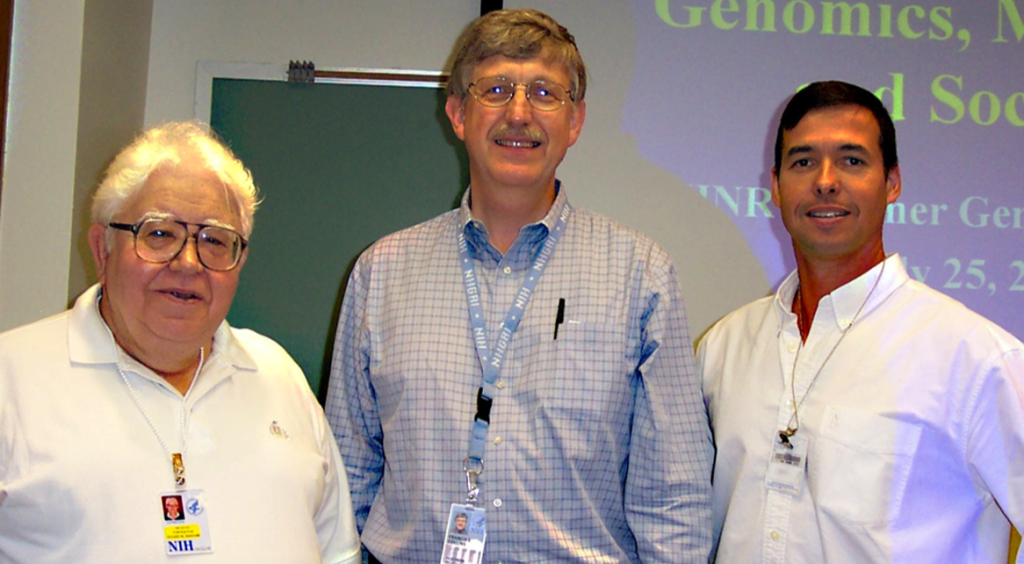
Bio-Trac® Biotechnology Training Programs proudly recognizes our long standing association with the National Institutes of Health (NIH). For nearly three decades (1985-2014) Bio-Trac® conducted an extensive program of biotechnology courses on the NIH campus under contract with the FAES.
Jan Ehrman highlights our contributions and provides a brief history of the program in this NIH Record May 2011 feature story.
Best-Kept Secret?
Bio-Trac Program Keeps Scientists, Students on Right Track
By Jan Ehrman
What scientific enterprise conducted at NIH has trained nearly 14,000 scientists since its inception more than 25 years ago, yet remains little known?
The program is called Bio-Trac, which offers state-of the-art scientific workshops and accredited courses through the auspices of the Foundation for Advanced Education in the Sciences (FAES). Bio-Trac has been a leader in training today’s investigators as well as young scientists hoping to make science their vocation.
Conducted at a postgraduate level and offered to both NIH researchers and outside scientists as well as teachers and science students at all levels beyond elementary school, Bio-Trac’s 43 accredited courses include lectures and hands-on laboratory workshops in such areas as microscopy, proteomics and genomics. The courses typically last 3 to 5 days and instructors come from NIH or the outside research community, according to Mark Nardone, program director.
Approximately 85 percent of the program’s attendees are M.D.s or Ph.D.s and nearly two-thirds are from NIH; the remaining participants are from industry and academia. Successful completion of each course garners academic credit as well as a certificate from FAES.
While Bio-Trac came to be known as it is today in 1985, its earliest days date to the 1970s, when it budded from a series of EEO training programs and NIDDK-sponsored extramural training workshops.
The impetus for the program came, in large measure, at the hands of Dr. Roland M. Nardone, professor emeritus at Catholic University and father of the current Bio-Trac director. His expertise in cell biology prompted development of courses such as “Cell and Molecular Approaches to the Study of Cancer” and “Animal and Human Tissue Culture.” Assisting the elder Nardone in his pioneering efforts were NIDDK’s Drs. Lou Cohen, Earl Laurence and Freddie Brown.
While the early days involved only the training of active researchers, the current Bio-Trac protocol also includes outreach courses for teachers and collegians as well as middle and high school science students. For the past 18 years, Bio-Trac has trained college biology majors and their professors at historically black colleges and universities, Hispanic-serving institutions and schools serving Native Americans.
The earliest training facilities were vastly different from today’s, recalls Mark Nardone. “We had to squeeze the instructors and the participants into one tiny area pretty much the size of a shoebox,” he noted. Currently, Bio-Trac sessions are held in a modern laboratory in Bldg. 60.
“The courses taught in Bio-Trac can be very useful for scientists as they learn new research areas,” said NCI’s Dr. Attore Appella, who has taught sessions on such topics as protein purification and the cell cycle. “The lecturers are very open to questions, even long after the course has ended.
“The program is so unique,” he continued. “I know of no other comparable series that has been running for so long and instructed as many students, not only from NIH, but from institutions all around the world.
”Though classes are well attended, many NIH’ers remain in the dark about the program. “Bio-Trac remains probably the best kept secret on campus,” Nardone said.
